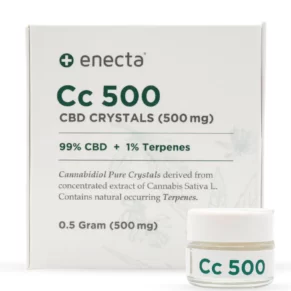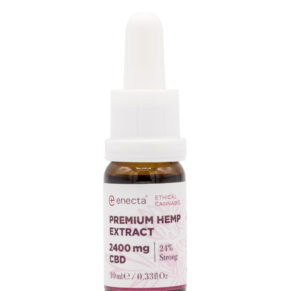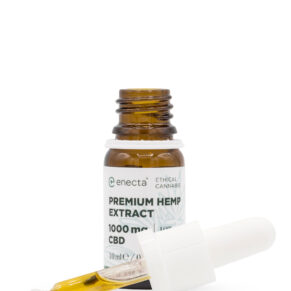- Your cart is empty
- Continue shopping
CBD and Drug Testing: What You Need to Know
Cannabidiol (CBD) has gained significant popularity in recent years for its potential health benefits, with many people using it to help manage conditions such as anxiety, chronic pain, and epilepsy. However, one common concern among CBD users is the potential for CBD to show up on a drug test, particularly in workplaces with strict drug testing policies. In this article, we will explore the relationship between CBD and drug testing, and provide important information that CBD users need to know.
Understanding CBD and Drug Testing
CBD is a non-intoxicating compound found in cannabis plants, including hemp and marijuana. Unlike tetrahydrocannabinol (THC), which is the psychoactive component of cannabis, CBD does not produce a “high” and is generally well-tolerated by most people. As a result, many individuals are turning to CBD as a natural alternative for managing various health concerns.
When it comes to drug testing, the primary concern for CBD users is whether the use of CBD products can result in a positive drug test for THC, the psychoactive component found in marijuana. Most standard drug tests are designed to detect the presence of THC and its metabolites in the body. While hemp-derived CBD products are legally required to contain no more than 0.3% THC by dry weight, there is still a potential risk of THC showing up on a drug test, especially if large quantities of CBD are consumed on a regular basis.
Factors Affecting CBD and Drug Testing
Several factors can influence the likelihood of CBD causing a positive drug test result. These factors include the type of CBD product used, the dosage, the frequency of use, and individual metabolism. Here are some key points to consider:
Type of CBD Product: There are various types of CBD products available on the market, including full-spectrum, broad-spectrum, and isolate. Full-spectrum CBD products contain a wide range of cannabinoids, including THC, while broad-spectrum and CBD isolate products are THC-free. As a result, individuals who are concerned about drug testing may opt for broad-spectrum or CBD isolate products to minimize the risk of THC exposure.
Dosage and Frequency of Use: The amount of CBD consumed and the frequency of use can also impact the likelihood of THC showing up on a drug test. High doses of CBD and frequent use can increase the chances of THC accumulation in the body, potentially leading to a positive drug test.
Individual Metabolism: Each person’s metabolism is unique, which can affect how quickly the body processes and eliminates CBD and THC. Factors such as body weight, hydration, and overall health can influence the rate at which cannabinoids are metabolized.
It is important to note that while hemp-derived CBD products are legally required to contain no more than 0.3% THC, some products may contain higher levels due to insufficient quality control and inaccurate labeling. Therefore, it is essential to purchase CBD products from reputable sources that provide third-party lab testing to verify the THC content and overall quality.
Common Misconceptions About CBD and Drug Testing
There are several misconceptions surrounding CBD and drug testing, which can lead to confusion and misunderstanding. Here are some common misconceptions to be aware of:
CBD will always show up on a drug test: While it is possible for CBD to result in a positive drug test for THC, the likelihood depends on various factors, as mentioned earlier.
CBD can mask the presence of THC: There is no scientific evidence to support the claim that CBD can mask or alter the results of a THC drug test. Standard drug tests are designed to detect THC and its metabolites, and CBD does not interfere with this process.
All CBD products are the same: Not all CBD products are created equal, and the THC content can vary significantly between different products. It is important to research and choose high-quality, reputable brands that prioritize transparency and product testing.
Frequently Asked Questions About CBD and Drug Testing
1. Will using CBD products make me fail a drug test?
The likelihood of failing a drug test due to CBD use depends on several factors, including the type of CBD product, dosage, frequency of use, and individual metabolism. While it is possible for CBD to result in a positive drug test for THC, the risk can be minimized by choosing THC-free products and using them in moderation.
2. What type of CBD product is less likely to cause a positive drug test?
Broad-spectrum and CBD isolate products are less likely to result in a positive drug test, as they do not contain THC. Individuals who are subject to drug testing may consider using these types of CBD products to reduce the risk of THC exposure.
3. Can CBD topicals cause a positive drug test?
CBD topicals, such as creams, lotions, and balms, are applied directly to the skin and are not likely to result in a positive drug test for THC. These products are designed for localized relief and do not enter the bloodstream in significant amounts, reducing the risk of THC accumulation.
4. What should I look for when purchasing CBD products to minimize the risk of failing a drug test?
When shopping for CBD products, it is important to choose reputable brands that offer transparent third-party lab testing to verify the THC content and overall quality of their products. Additionally, selecting broad-spectrum or CBD isolate products can help minimize the risk of THC exposure.
5. Can secondhand exposure to THC from others cause a positive drug test?
While it is unlikely that secondhand exposure to THC from others can lead to a positive drug test, it is important to be mindful of exposure to smoke or vapor containing THC, as well as the potential transfer of THC residues through skin contact.
In conclusion
CBD users should be aware of the potential risk of CBD products causing a positive drug test for THC, especially in workplaces with strict drug testing policies. Factors such as the type of CBD product, dosage, frequency of use, and individual metabolism can influence the likelihood of THC showing up on a drug test. Choosing THC-free CBD products from reputable sources and using them in moderation can help minimize the risk of failing a drug test. It is essential for individuals to educate themselves and make informed decisions when using CBD products, particularly if drug testing is a concern. As the CBD industry continues to evolve, ongoing research and regulatory oversight will provide further clarity on the relationship between CBD and drug testing.






